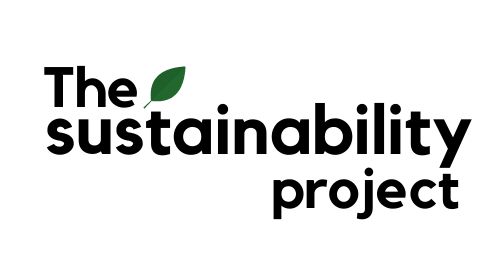We recently had the opportunity of interviewing and collaborating with GreenDay, one of Singapore’s largest online sustainable marketplace with over 2,000 sustainable products from 50 brands!
Sustainable living is now made even more enjoyable than ever with GreenDay – a gamified mobile platform that fulfills all your sustainable lifestyle needs.
More than just an e-commerce app, GreenDay infuses gamification and rewards system into their online marketplace, where sustainable products are also of reasonable prices and high convenience.
They want to bring knowledge about sustainability to you through a series of educational and fun challenges. Ultimately, they hope to motivate the world to pursue a sustainable lifestyle.
Discover what goes behind the scenes and the thoughts of an interactive and new, evolved e-commerce business, that made GreenDay what they are today!
What inspired you to start GreenDay?
GreenDay was started when a group of friends came together during a regular brainstorming session to ideate on gamification and e-commerce.
The team wanted to create something that is more meaningful than mobile games and the typical shopping platforms and has a positive impact on the world rather than just encouraging more consumerism and idle game-playing.
We came up with the concept of a sustainable lifestyle platform in which users can use to improve their lives and also impact the people and environment around them.
What is the main goal for GreenDay and what actions will you be taking to achieve the goal?
The main goal for GreenDay is to have an incremental positive impact on the world (environment and community) with every click that our users make inside our app.
To achieve this, we ensure all prioritized features revolve around sustainability aspects. This includes community action, education, and environmental impact.
What do you think is your unique selling point?
GreenDay is a sustainable lifestyle platform with a marketplace, community, and entertainment sections. There are so many mobile applications out there but not many meaningful ones where users feel a sense of fulfillment after using them. We would like to fill up that gap.
- Localization – We want to be the largest sustainable platform in South East Asia, catering to the needs, lifestyles, and culture of Singapore and the region. We have a Singapore based multi-racial and multi-cultural team that gives us a unique edge to offer local flavor and relevance for the users here.
- Content – We have developed a unique solution to marry content and e-commerce perfectly where the content inspires direct action. Join our platform to find out what it is. We do not want to spoil the surprise.
- Gamification – Staying true to our original idea, we have introduced gamification elements to instill ‘fun’ inside our application. These are not random games but games, missions, and challenges relevant to sustainability in terms of education and action. We believe that gamification is more than just being motivated by rewards and discounts we see in most e-commerce platforms. It is about real fun and challenge, like in other mobile games. But more than, we hope it inspires action in the real world.
What are some challenges you faced when you are starting out?
Initially, we have many doubts about winning over consumers with sustainability rather than low prices. Most, if not all, e-commerce platforms are very focused on discounts and promotions and GreenDay is not about that.
We have to thank the merchants and our initial users who have supported and inspired us along the way. They showed us that pricing is not the only consideration. We believe there is a growing segment of eco-conscious consumers that are focused more on the quality and the sustainability of products.
We have also written an article about the evolution of e-commerce.
Since the launch of GreenDay, what is the general response from the public and corporates?
Currently, we are focusing mainly on local small-medium businesses with eco-friendly products versus MNCs.
So far, most merchants are very supportive of GreenDay. They are very willing to get onboard to list their products and even share useful content on our platform.
Can you share with us some statistics on the impact of Green Day since it was launched?
We are on track to reaching 5,000 products on our platform as we onboard minimally 1 new merchant per day.
Our target is 10,000 high-quality products this year. We have only started recently this month and the number of new users is almost doubling every day.
For those who are interested in getting involved with GreenDay, can you share 2-3 quick and easy steps to get started?
If you are interested to collaborate with us, you can email us at admin@greendayapp.com and let us know your interest.
We will contact you for a 5-10 minute chat to learn more about your business and products (could be longer than 10 minutes especially in times of social distancing). Our team will then assist to upload your products to our platform once you give us the thumbs-up.
If you are looking to kickstart your zero-waste lifestyle, you can download GreenDay to gain access to the largest online marketplace from AppStore or Play Store for sustainable alternatives.
How do you think support for sustainability and zero-waste lifestyle has changed, and in what ways?
We think that Singapore, in general, is moving in the right direction to bring sustainability and zero-waste lifestyle into the limelight. The Singapore government is very supportive of the green movement in different industries such as retail, logistics, and even construction.
While there is still some ‘greenwashing’, it is an unfortunate side effect of positive transformation happening in the world. It is just a matter of time before consumers are able to identify ‘greenwashing’. For consumers, while pricing is a key factor in lifestyle decisions, we are becoming increasingly demanding of the quality of our lifestyles and experiences.
We are moving towards product quality and are learning how certain products affect the people around us, especially the people we love. Further, we are more aware of how consumer products have an impact on the environment along their supply chains.
What are some ways you do to incorporate sustainability within the company and your daily lifestyles?
Within the company, we work mainly with software tools and virtual teleconferencing and rarely need to meet in one place. Thereby, minimizing paper wastage and carbon footprint. Of course, this is also facilitated by the current COVID-19 lockdown.
Even before the lockdown, the majority of the team walk to our meeting locations to keep fit and minimize transportation. I remember when we first started, my cofounder walked 10 km just to meet me. In our daily lifestyles, we also walk to places we need to go. We constantly remind ourselves to reject any plastic bags given to us by servers.
To be honest, GreenDay has become an inspiration for us to become more sustainable than before, in our previous lives. Whenever we do something, we will question ourselves, are we living up to GreenDay values? It is interesting because we wanted to build GreenDay to change the world, and building it changed us for the better too.
What are your future plans for the business?
We are currently still testing our platform and gathering user feedback from our soft launch as we believe in the lean startup method (Eric Ries) of building, validating, and learning.
Our future plans for the business is to build in more gamification and community bonding elements into GreenDay so that it becomes a truly experiential application for the user. Ultimately, we want to achieve our goal of having every click leading to a better lifestyle and a better world.
We intend to expand within Southeast Asia with GreenDay as we believe in its huge market potential and the growth of ethical consumerism within this region.
Lastly, do you have any advice for businesses or individuals who are thinking of incorporating sustainable practices?
For businesses, our advice is not to assume incorporating sustainable practices to be an expensive endeavor. If it does not give a positive return on investment (ROI), it means the business might be doing it wrongly. Sustainability should not come at the expense of business.
When calculating ROI, it should be noted that positive returns can come in different forms apart from direct short-term revenue. It can be from an increase in productivity or a reduction in asset depreciation.
Or even an increased customer lifetime value due to better user experience. In a nutshell, if sustainability practices are incorporated correctly, it will benefit businesses in the long run.
For individuals, we advise you to read more about sustainability. In general, there is an increasing awareness of sustainability. However, there are still individuals who perceive living sustainably as living a ‘downgraded’ lifestyle. In fact, we and others that we interviewed believe the opposite is true.
Sustainable living is about thriving. It is about treating yourself better in terms of health and spirit. It is about valuing the people around you, especially your loved one. It is about protecting and conserving the environment so that we and future generations can have a future.

